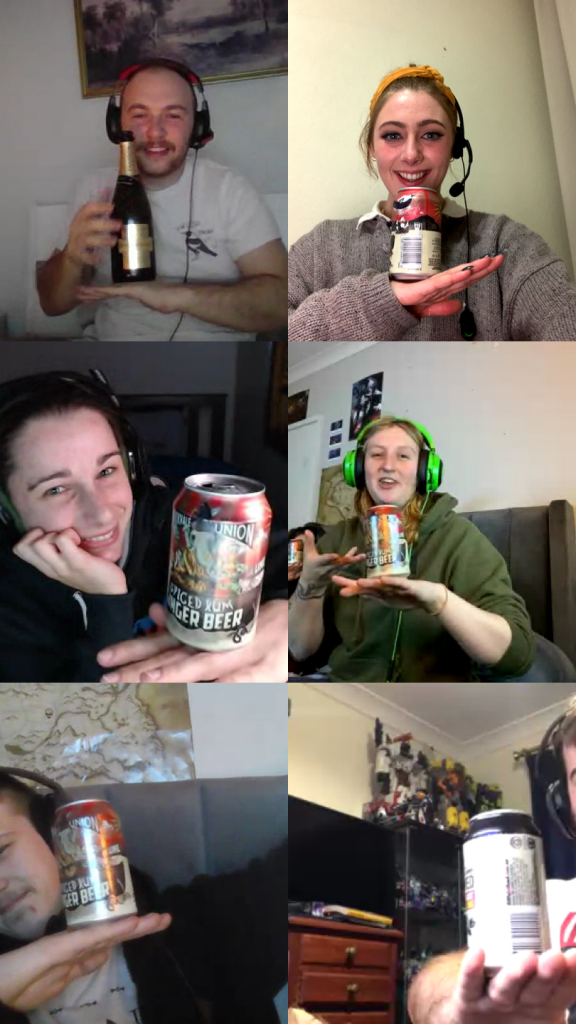Australians are born and bred with alcohol flowing through their veins… as they seem to think. What they forget is that alcohol is the most commonly used drug in Australia.
While Australians use it as a way to socialise, since the rise of COVID-19 that social aspect has dissipated and turned into a coping mechanism.

More people are drinking at home during the pandemic and its a rising fear among researchers that the result will turn people into becoming physically and emotionally dependant on alcohol.
Graeme Harrison-Brown and his partner Charmaine Daniel had to move back to Australia and isolate for 14 days after living in Vanuatu for almost 2 years. Graeme noted that there were a lot of things at the beginning that no one talked about and thought about which has proven that COVID-19 has been challenging.
On-premise alcohol sales went down when bars and pubs closed and people started social distancing, but retail sales where people buy alcohol to consume elsewhere went up by 10%.
With severe lockdowns having to be put in place, job losses have triggered a surge in mental health crisis calls. Mental health support groups have been swamped with about a 20% jump in pleas for help as soon as stage three and four lockdown restrictions began in some states and countries.
It is concerning to see that the misuse of alcohol has the ability to push people to that vulnerable edge by the pandemic and related stresses.
Loneliness and separation has increased those to drink and lead to a viscous cycle of using alcohol to fix a problem, most commonly mental health.
People are now finding themselves abusing these substances to cope with anxiety, negativity, stress and the change in environment.
78 per cent of people in a survey reported that their mental health problems had worsened during the outbreak. Over half of those reported were worried about loneliness, financial troubles, and uncertainty. 64 per cent of participants reported increased level’s of depression, anxiety, and stress.
“If I was still married to my now ex-wife, I probably would not be alive. I would have started drinking, eaten all unhealthy snack I could find, because you would need some other escape. The fact that my partner and I seem to co-habit quite well without getting on each other’s nerves too much, we were fortunate. But there’s not a lot of people out there that have that same relationship, which I understand and I emphasise with a lot of people because I understand why the alcohol bill went through the roof,” Said Graeme
There is a common trend among millennials to hop online and express their emotions on how they are feeling and dealing with the negative impacts COVID-19 has had on them. Unfortunately, this is often through alcohol consumption. Many feel they are able to express their emotion fully and let loose while under the drug and using it to deal with issues and even during day to day practices.
While there should be a happy ending to this, there will not be a happy ending until COVID-19 is over and people can get back to their usual lives, because alcohol is not the solution to the problem, especially if that problem happens to be someones health.
If you are or know of someone who is suffering from mental health issues or alcoholism, reach out to them and give them the help they need through this pandemic, let them know they are not alone.
AVAILABLE HOTLINES
Beyond Blue: 1300 224 636 (24 hours/day, 7 days/week). You can also chat online with the Beyond Blue Support Service every day from 3pm until 12am.
DrugInfo: 1300 858 584 (9am – 5pm, Monday – Friday)
Family Drug Support Australia: 1300 368 186 (24 hours/day, 7 days/week)
Youth Support + Advocacy Service: 1800 458 685 (9am – 8pm, Monday – Friday)
Kids Helpline : 1800 551 800 (24 hours/day, 7 days/week)
Parentline (QLD and NT): 1300 301 300 (phones open 8am – 10pm, 7 days/week
Parentline WebChat: 8am – 9pm, 7 days/week
Lifeline: 13 11 14 (24 hours/day, 7 days/week)
Lifeline text: 0477 131 114 (6pm – 12am, 7 days/week)
Counselling Online: chat online with a professional counsellor
Alcoholics Anonymous: 1300 222 222 (24 hours/day, 7 days/week)
Alcohol Drug Information Service (ADIS): 1800 250 015ADIS provides a free, 24-hour support line for those who are having issues with alcohol, are concerned about someone else’s alcohol use, or just have general questions about alcohol.
ADIS webchat is available Monday to Friday 8.30am – 5pm (including public holidays).
ADIS also offers information to support Aboriginal people in NSW in reducing the harms caused by alcohol and drugs.
